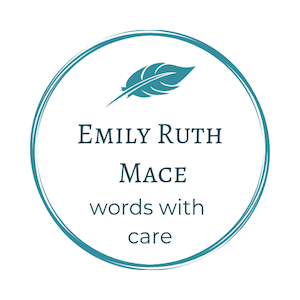Yesterday my article at Religion Dispatches about “strays on the religious frontier” was published, and I wanted to add a few follow-up thoughts that didn’t fit into the article. Percival Chubb is a gem of a writer for one interested in religious liberalism; his two main books – Festivals and Plays in Schools and Elsewhere and On the Religious Frontier: From an Outpost of Ethical Religion are both very enlightening about religious liberalism at the end of the nineteenth century. In that latter text, he offers some further characterizations about what’s being done to stop the flow of people into the “territory of the unchurched.”
His descriptions, for example, of other “outposts on the frontier” are as telling as his descriptions of the people leaving the territory of the churches.
- “These small modernist outposts include left-wing Unitarians, Humanists, Ethicists, and others.
- Mingled with them are smaller cults representing varieties of New Thought;
- and further to the rear are the advanced churches in which liberalized leaders preach bold and unconventional doctrines, set in liturgies that conflict with them, under the strain of embarrassing compromises.”
I’m fascinated that by 1931, the Unitarians are being lumped with secularists, ethicists, humanists. It’s true, humanism was becoming a major strand within Unitarianism (the Humanist Manifesto I came out in 1933, with much input from Unitarians), but it’s very telling that the Unitarians don’t even count among the “advanced” churches.
I am equally struck at his depiction of liberal – ahem, advanced – churches. Bold doctrines! Unconventional, even. But with liturgies that conflict with them, and oh, the embarrassment. I think, for example, of the Episcopal Church, with which I’m most familiar other than Unitarian Universalism.
As with the groups of people leaving churches for unaffiliation, the houses of last-resort which attempt to provide some kind of a spiritual, ethical, religious place to affiliate (“there are children with them,” as Chubb reminds us, children who might need some kind of foundation) these remain the same ones as today, although today we might have a few more options to throw in the mix. (I think, for example, of Secular Humanist Judaism, or the Harvard’s Humanist Community).
What Chubb proposes to take the place of traditional religion is really quite interesting. He argues that as “culture becomes more world-minded,” more cosmopolitan, churches must do so as well, or become irrelevant. He did not have a way to peer into the future to see the ways in which “Sunday morning” would remain the “most segregated hour” in the week. Religion remains divisive, something to separate people. But instead, Chubb dreamed of a religious organization — like Ethical Culture — that saw something almost holy (maybe, or perhaps not quite) in the gathering together of people of diverse backgrounds for fellowship, a chance to make something larger when “the many are made one in visible presence,” as he put it. But that is another story for another time.




Emily, Thank you so much for the RD piece, and especially for the extra material here on Chubb. I’m hoping you saw my piece on the various communities open to interfaith families, which includes many you write about, including Ethical Society, UU, Sunday Assembly. Given the large number of interfaith couples in ES and UU communities, it would be interesting to trace how these “both” (rather than “none”) families have contributed to liberal religious (and nonreligious) streams. I wonder what Chubb would have thought of the formation of the intentional interfaith family communities I write about: places that are theologically diverse, at times holy, and with children! (Link to my piece…http://www.huffingtonpost.com/susan-katz-miller/7-ways-for-interfaith-families-to-find-community_b_5796670.html). Does he mention interfaith families in his writing?
I don’t recall any mention of interfaith families in his writing, or Adler for that matter (who would have had his own perspective coming from High Reform Judaism). I know there’s a lot of overlap there, as you’ve written about, but I don’t know if anyone’s ever added up numbers. I think a main difference in Ethical Culture is that they are so humanist/ethical/secular in their outlook, whereas it sounds like the interfaith communities are more explicitly religious, in terms of including the traditions’ shared God, and teaching “about what people believe about the traditions” from a much more insider perspective than found at Ethical Culture and similar organizations. Also, thanks for sharing your HuffPo piece, I hadn’t seen it and will definitely take a look!
Ouch, “strays”?
Responding to the comment by Susan Katz Miller and your response — Ethical Societies have often had interfaith families, some societies more than others. Felix Adler called them places for “infidels and believers” — while the Society itself is not theistic or associated with a particular faith, interfaith families have often found that to be a plus for a place for raising their children.
Yes, Percival Chubb – who was trained by Adler as a Leader – really does use the term “strays,” as well as “estrays,” “wayfarers,” “sessionists” (!), “homeless,” etc. He clearly things lack of affiliation is a negative thing, and spends most of the book setting up Ethical Culture as a positive, “worldly-minded” option for those for whom “the days of sacerdotalism are gone for good.” Thanks for reading/commenting!